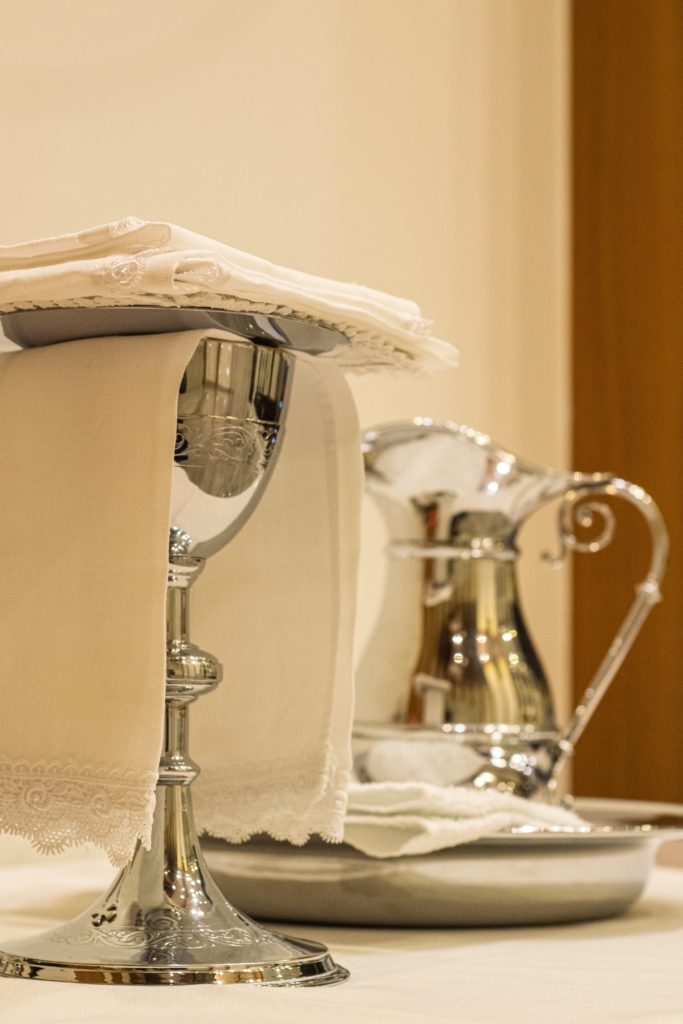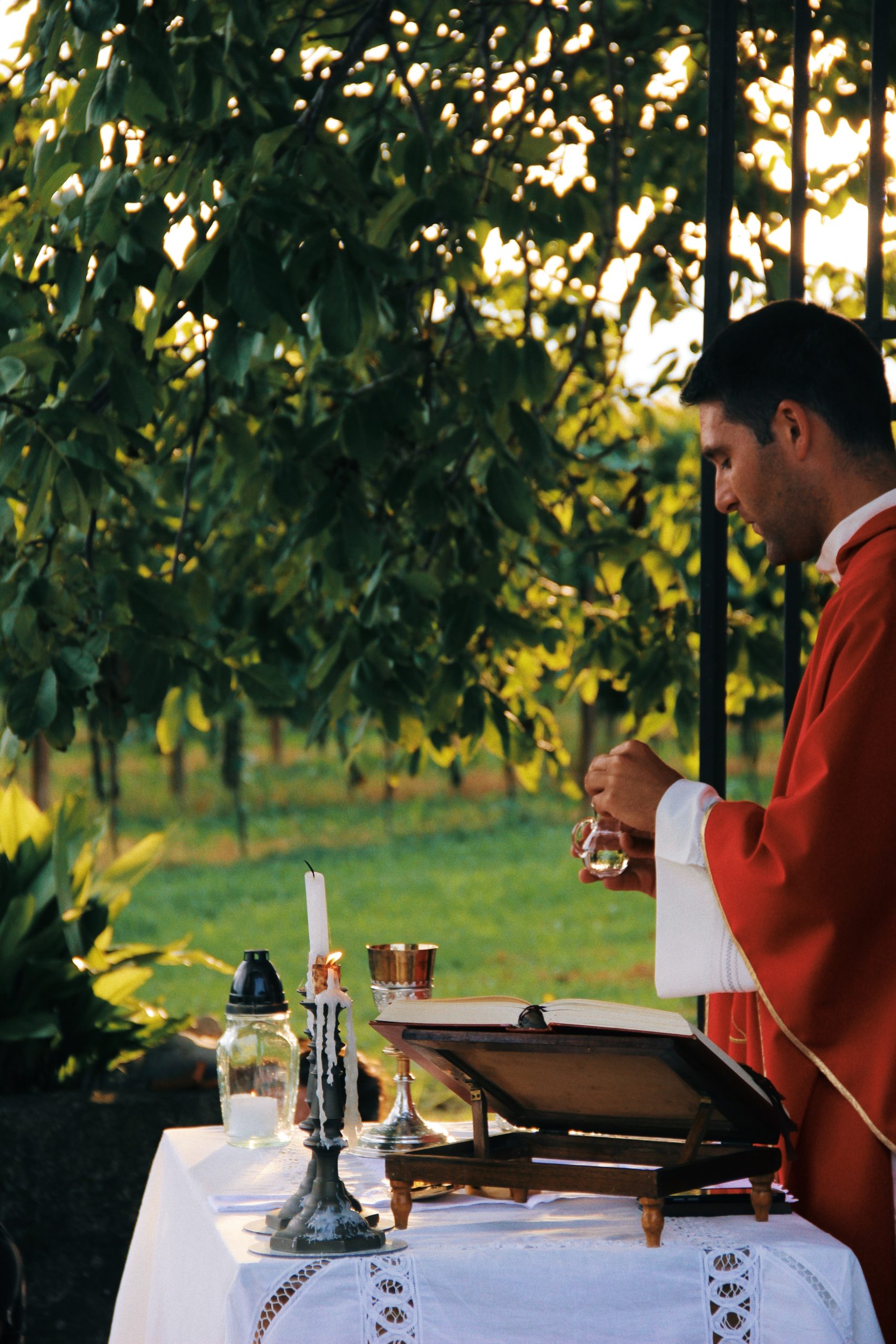What is Liturgy?
Liturgy gives our worship form and structure. The roots of Christian liturgy can be traced back 3000 years to the earliest records of Jewish worship. Many of the specific prayers and phrases date back to just a few generations after Christ. Liturgy is literally defined as “the work of the people” and is congregational and participatory in nature. We do not come together in the pursuit of an experience, though exalted feelings may follow; our primary focus is bringing a sacrifice of honor and praise to the Most High God.
Liturgy assists us when we are weary in the spirit and worship seems difficult. It is in effect a stream of life-giving water flowing toward the throne of God, carrying us in its current when we’ve exhausted all our strength.


Sacrament and Symbolism
One distinctive of Anglicanism is the sacramental nature of its worship. Every action, gesture, and element is significant and rife with symbolism. Humans naturally gravitate toward tangible symbols and ceremonial rituals to commemorate and celebrate important milestones or abstract truths and covenants. Just as Christ used the everyday stuff of life (bread, wine, oil, etc.) to convey his kingdom ethic, so we believe that the physical elements of life enhance our worship and can act as vehicles of his grace.
The Opening Acclamation
The opening acclamation quickens our hearts, reminding us of the inauguration of the Kingdom of God here “on earth as it is in heaven.” The celebrant declares, “Blessed be God, Father, Son, and Holy Spirit,” to which the people respond, “And blessed be his kingdom, now and forever. Amen.”
The Collect
The intent of the collect is to collect or sum up the prayers of the people. It is a prayer reflecting upon the scriptures and changes according to the season of the church.
The Readings
Anglican worship is heavily focused on scripture and incorporates a passage from the Old Testament, the Psalms, and the New Testament epistle during this portion of the service. The people corporately respond to the readings by declaring, “Thanks be to God.” The celebrant or leader then comes out among the people and reads from one of the gospels. The people stand during the reading and respond in unison with, “Praise to you, Lord Christ.”
The Creed
We affirm the foundations of our faith through the Nicene Creed, joining with believers in the present and from centuries past.
Prayers of the People
We share in the priesthood of all believers by interceding on behalf of the needs of the local church (or parish), the broader needs of the universal church, and the world at large. Many of these prayers are in written form though spontaneous requests are incorporated as well.
Written prayers help guide us away from our often self-centered petitions and direct our thoughts toward the needs of others. Believers often struggle with feelings of defeat in their prayer life; liturgical prayers take the focus off of human effort by equipping us with language as we bring our requests and praise to God.
Confession and Absolution
We bring our faults before God in a corporate prayer of confession and are reminded by the celebrant of the mercy and forgiveness that reaches us through the sacrifice of Jesus.
Passing of the Peace
Having received peace through the remembrance of our absolution, we extend a greeting of peace to those around us.
Holy Eucharist (also known as Communion)
Anglican worship culminates in the communing of our hearts with Christ at his table. He invites us to come in remembrance of him, and he in turn reveals himself to us in the breaking of the bread, just as he did with the disciples. The Eucharist not only serves as a memorial but a time in which our souls are nourished by the body and blood of Christ.
At the beginning of the liturgy of the Eucharist, the offering is brought forward at the same time as the bread and wine as a symbol of bringing to God the first fruits of the work of our hands. The priest says a prayer of concretion over the elements, then elevates the cup and declares, “The Gifts of God for the People of God. Take them in remembrance that Christ died for you, and feed on him in your hearts by faith, with thanksgiving.” The term “Eucharist” literally means “thanksgiving”.
Benediction and Dismissal
At the end of an Anglican service we are not dismissed from the presence of God but commissioned to “go in peace to love and serve the Lord” and empowered to take his presence to the outside world.

